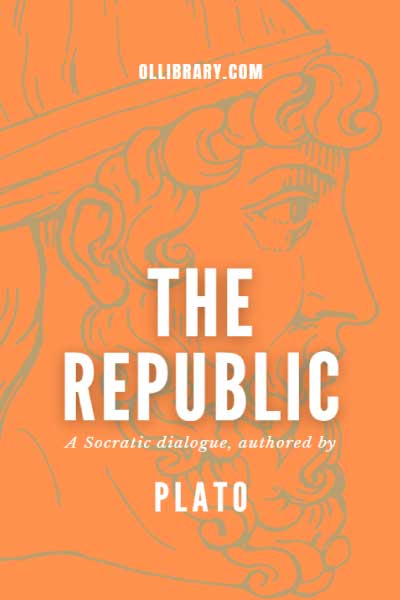The Republic
by Plato
Translator: B. Jowett
The Republic is a Socratic dialogue, authored by Plato around 375 BC, concerning justice (δικαιοσύνη), the order and character of the just city-state, and the just man. It is Plato's best-known work, and has proven to be one of the world's most influential works of philosophy and political theory, both intellectually and historically.
In the dialogue, Socrates talks with various Athenians and foreigners about the meaning of justice and whether the just man is happier than the unjust man. They consider the natures of existing regimes and then propose a series of different, hypothetical cities in comparison, culminating in Kallipolis, a utopian city-state ruled by a philosopher-king. They also discuss the theory of forms, the immortality of the soul, and the role of the philosopher and of poetry in society. The dialogue's setting seems to be during the Peloponnesian War.
Martin Luther King Jr. nominated The Republic as the one book he would have taken to a deserted island, alongside the Bible. In 2001, a survey of over 1,000 academics and students voted the Republic the greatest philosophical text ever written. Julian Baggini argued that although the work "was wrong on almost every point, the questions it raises and the methods it uses are essential to the western tradition of philosophy. Without it we might not have philosophy as we know it." In 2021, a survey showed that The Republic is the most studied book in the top universities in the United States.
Excerpted from The Republic on Wikipedia.
The Republic
| Author | Plato |
| Country | Ancient Greece |
| Genre | Politics, Philosophy |
| Copyright | Public domain worldwide. |
| Book cover | - |
| Ebooks | Project Gutenberg |
| Scans | Google-digitized |
| Audio | Librivox | Internet Archive: Reader: Bob Neufeld 01a 01b 02a 02b 03a 03b 04a 04b 05a 05b 05c 06a 06b 07a 07b 08a 08b 09a 09b 10a 10b |
| Read online | The Republic I, II |


